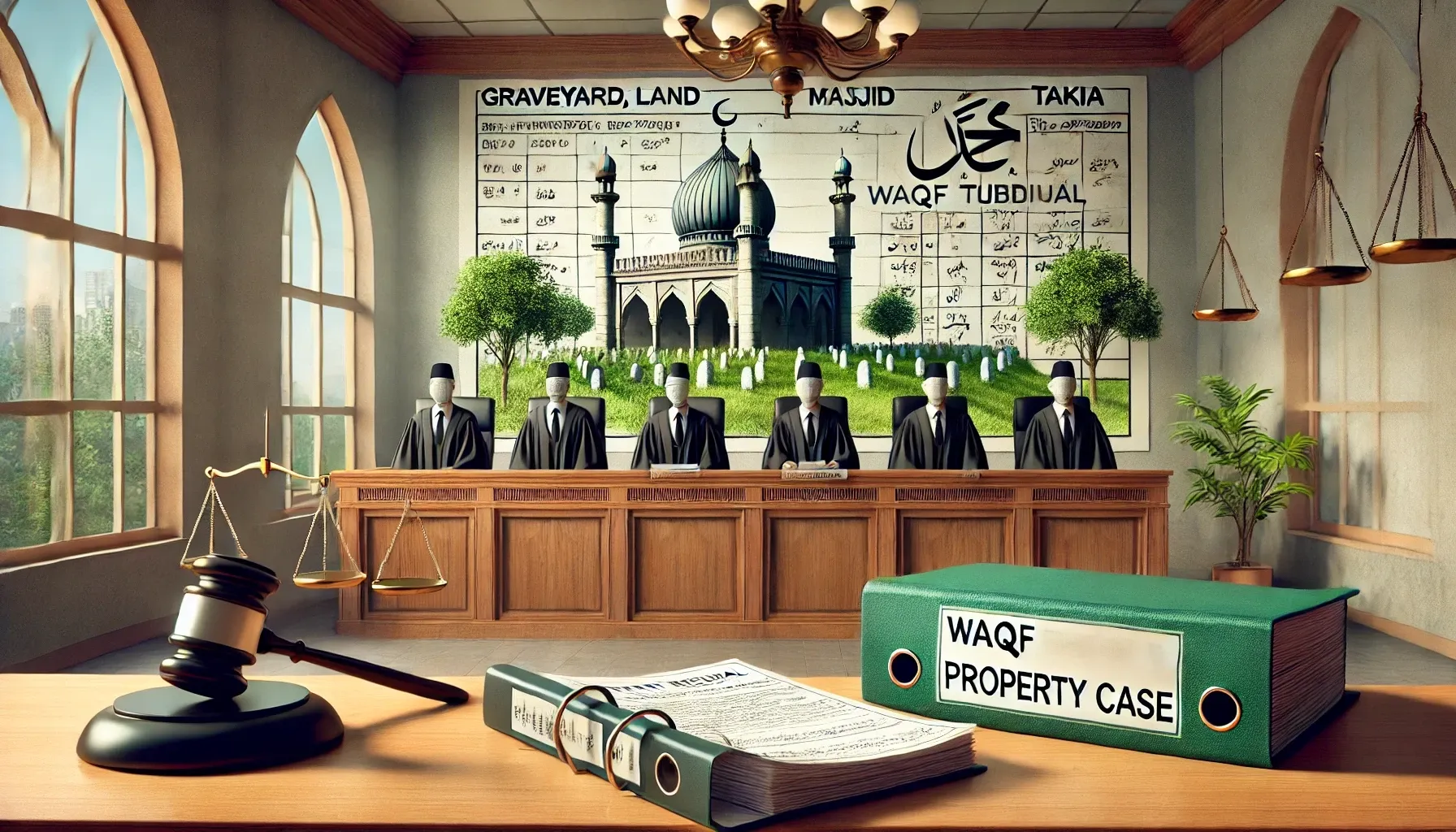The Punjab & Haryana High Court has upheld the Waqf Tribunal’s decision to classify disputed land as waqf property, rejecting the Gram Panchayat’s claims, and reinforced the inviolability of revenue records.

The Punjab & Haryana High Court, in a landmark decision, upheld the Punjab Waqf Tribunal’s authority to classify disputed land as waqf property, rejecting a challenge by the Gram Panchayat of Village Budho Pundher. The case revolved around disputed land described in revenue records as "Masjid, Graveyard, and Takia" but claimed by the Gram Panchayat as Shamilat Deh (village common land).
The ruling not only affirmed the jurisdictional competence of the Waqf Tribunal but also highlighted the inviolability of revenue entries, particularly those indicating religious or community usage. This case serves as a critical precedent for disputes involving religious trusts and community lands, especially in light of prolonged neglect or non-usage claims.
The Gram Panchayat’s Challenge: Claims on Community Land
- The Gram Panchayat of Village Budho Pundher contended that the disputed land, recorded in revenue records as a graveyard, mosque, and takia, was part of the Shamilat Deh or village common land.
- Their plea challenged the Waqf Tribunal’s jurisdiction to adjudicate the matter, arguing that the Tribunal lacked authority under the Punjab Act to declare the property as waqf land.
- The Panchayat further claimed that the prolonged non-use of the land by the Muslim community diminished its religious significance, thus granting the Panchayat rightful control over it.
The Court’s Firm Stand: Revenue Entries Cannot Be Ignored
- Justice Sureshwar Thakur and Justice Sudeepti Sharma, speaking for the bench, delivered a resounding verdict rejecting the Gram Panchayat’s arguments.
- They observed:
“The entry of Shamilat Deh (common land used for village benefit) in revenue records is of the least legal significance, nor does it erode the conclusivity of truth, as becomes assigned to the entry of Takia, Graveyard, and Masjid.” - The court emphasized that the classification column in revenue records, describing the land as Takia, Graveyard, and Masjid, holds precedence over its general entry as Shamilat Deh.
Historical Background: From Maharaja Kapurthala to Post-Partition Surveys
- The court delved into the historical records, noting that the land was donated by Maharaja Kapurthala to Nikke Sha and Slamat Sha, the sons of Sube Shah, in 1922, for religious purposes explicitly described as Takia, Graveyard, and Masjid.
- Post-Partition, the Sha family migrated to Pakistan, and the land was subsequently mutated in the name of the Gram Panchayat.
- However, a 1966 re-survey identified the land as religious property in the classification column, reaffirming its nature as Masjid, Graveyard, and Takia.
Legal Precedents: Waqf Property and Public Trusts
- The court relied on the 1968 Supreme Court ruling in Syed Mohd. Salie Labbai (Dead) by LRs vs. Mohd. Hanifa (Dead) by LRs, which established that “once a kabristan (graveyard) has been held to be a public graveyard, it vests in the public and constitutes a waqf. It cannot be divested by non-user but will always continue to be so, whether it is used or not.”
- Applying this principle, the court concluded that the land’s classification as waqf property was immutable, regardless of claims of prolonged non-usage.
Jurisdiction of the Waqf Tribunal: Final and Binding
- The court firmly dismissed the Panchayat’s contention that the Waqf Tribunal lacked jurisdiction, stating:
“The jurisdictional competence to try the lis solitarily vests in the Punjab Waqf Tribunal.” - It held that the Tribunal acted well within its statutory authority in declaring the land as waqf property and passing an injunction restraining the Gram Panchayat from disturbing its possession.
Concluding Observations: Significance of the Ruling
- Justice Thakur remarked:
“Any entry in the revenue records declaring the land as Takia, Graveyard, and Masjid enjoys conclusivity and is required to be protected even at the site concerned, despite evidence of purported prolonged non-user thereof by the Muslim community.” - The judgment underscores the sanctity of waqf properties, particularly those historically dedicated to public or religious purposes, and the irrefutable authority of revenue records in determining land classification.
Key Takeaways from the Judgment
- Revenue Records Prevail: Entries in revenue records denoting specific religious or community use override generic descriptions like Shamilat Deh.
- Waqf Properties are Immutable: Prolonged non-use does not negate the status of waqf properties.
- Jurisdiction Affirmed: The Punjab Waqf Tribunal holds exclusive jurisdiction in cases concerning waqf property, reinforcing its statutory mandate.
Case Title: GRAM PANCHAYAT OF VILLAGE BUDHO PUNDHER v. PUNJAB WAKF BOARD AND OTHERS
Attachment:





